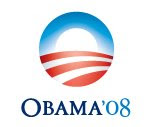
Chuck Klosterman's been on my radar for a while. Back in the MFA days, a copy of his Sex, Drugs, and Cocoa Puffs sat on the shelf in our office, courtesy of Drevlow. I never even picked it up, because I couldn't get past the stupid title. Klosterman's good at many things, but titles isn't one of them. But Drevlow loved reading him, and I could usually trust his tastes. So I was torn.
Then I was in Barnes and Noble, gift card in hand, faced with a hardcover copy of this book for six dollars. I decided to give it a shot.
Killing Yourself to Live (guh--what a stupid title) is worth the six dollars. There were times while reading this when I wanted to yell like Meg Ryan in the diner scene of When Harry Met Sally--not from physical ecstasy (or the mimicry thereof), but from recognition, in acknowledgement. "Yes! Yes! Yes! That's exactly right!" One example is his description of the revisionist history following the suicide of Kurt Cobain:
Then, of course, Kurt killed himself. Soon after, the reverse engineering began in earnest. Slowly, the memory of Cobain evolved; weeks after his death, people who hadn't seemed especially jarred by his passing started to claim they were finally feeling okay. The memory of the recent Nirvana backlash disappeared; suddenly, Nirvana had always been everyone's favorite band.Nevermind was no longer the soundtrack to living in the early '90s--now it was that experience in totality. Kurt Cobain had not merely made culturally important music--suddenly, he had made culture. His death became a catchall event for anyone who wanted their adolescence to have depth: It was now possible to achieve credibility simply by mourning retrospectively.
The Cobain-worship that sprung up after his death always irked me. People forget, I guess, that right before he died Nirvana was fading, and, as Klosterman writes, "[B]y the spring of 2004, Pearl Jam was way more popular. It wasn't even close. . . . Pearl Jam was seen as the people's band; Nirvana was the band that hated its own people."
Other times, though, Klosterman misses the mark. He never writes poorly, and his voice is enjoyable throughout, and he's never objectively wrong (it would be impossible, considering he's writing of his own experiences and impressions) but sometimes he just drops the ball. An opportunity for deep reflection is staring him in the face and he passes it by. Or maybe not. Maybe it wasn't there for him, it's only staring me in the face because of my perceptions, my experiences. Hell, it's his book. I'll just leave it at "I really wish he would have grabbed that bit by the throat and shaken everything out of it."
In addition to a casual, witty delivery, Klosterman's just a couple years younger than I am, and he grew up in North Dakota, so our perspectives are similar, our cultural touchstones coincide fairly often. Especially when it comes to KISS. Everything he says about the solo albums is absolutely true. His comparison of his romantic relationships to the members of the band is brilliant. He reminded me of something I've been meaning to write about, and I'll probably post that here soon.
Sometimes Klosterman's hyperawareness of pop culture feels a little forced, and that kind of thing always makes me wince a little, but this book feels sincere. And since it's funny in spots and poignant in places, I think it's worth reading. And he provokes me. He makes me want to add my thoughts to what he's said. He compels me toward dialogue with him. It gives me the impression that if he and I were to meet, we'd probably get along too well.

No comments:
Post a Comment